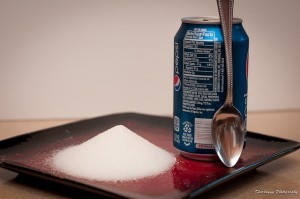Melanoma’s Sugar Addiction Might Lead To A New Treatment
Comment: One would have to question the lack of information up to this point and beyond in chemicals and food products that have a lack of minerals and are extracted concentrates and why patients have not been given the chance to self heal through the most obvious ways. The basics in the name of science are ignored and the education on this subject make way for commercializing on the patient in the shop and clinic until they are butchered and die. Rational medicine is thrown out the window and we are told this is science!
Does this research tell us anything other than one of the known causes of cancer- sugar and of course an expensive drug for the answer when all the body wants is for us to be real with it.
Sunday April 6 2014 KAMAL NAYAN
Melanoma cells are dependent on glucose to grow and spread which means blocking its fuel source can halt cancer growth, a new study is suggesting.
Melanoma cells are dependent on glucose to grow and spread which means blocking its fuel source can halt cancer growth, a new study is suggesting.
Melanoma is the most deadly cancer in Australia and claims no less than 1,500 lives every year. Researchers found that around 40 percent of melanomas are driven by mutations in the BRAF gene and mainly rely on glucose that drives their aggressive growth.
Researchers also noticed that tumors driven by BRAF genes had particularly high use of glucose which got turned off very rapidly after drug therapy, indicating that the medication was effective.
SHARE THIS STORY
“While we know these drugs are incredibly effective in patients who have this particular mutation, it will only stop them growing for a period of time – sometimes years, but unfortunately sometimes it only keeps it under control for weeks,” said co-author Professor Rodney Hicks, in the press release.
As the melanoma’s glucose supply was turned back on, the tumors started to grow again and becoming resistant to the effects of the drug.
“We found that the cells were ‘addicted’ to glucose in their need to grow,” Prof Hicks added. “Some were so addicted, they would kill themselves as soon as the supply was threatened, while others were able to survive.”
The subsequent step involves developing therapies that kill the remaining cancer cells by “cutting off the fuel supply.”
Prof Hicks noted that blocking the melanoma’s glucose supply was not as simple as eating less sugar.
“Your brain and heart and all your other tissues need sugar so that’s not a viable proposition. What we want to do is target a very specific use of glucose in cancer cells,” he said.
